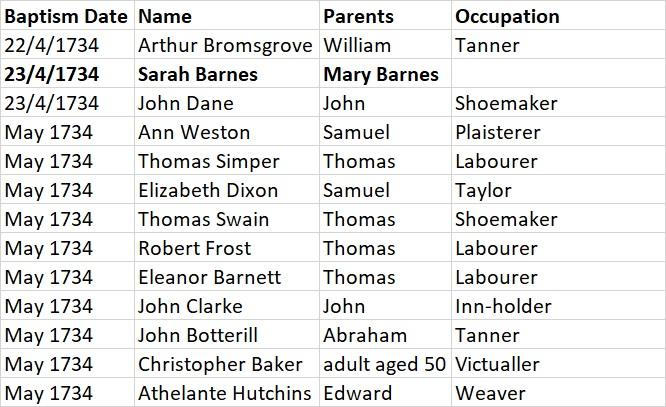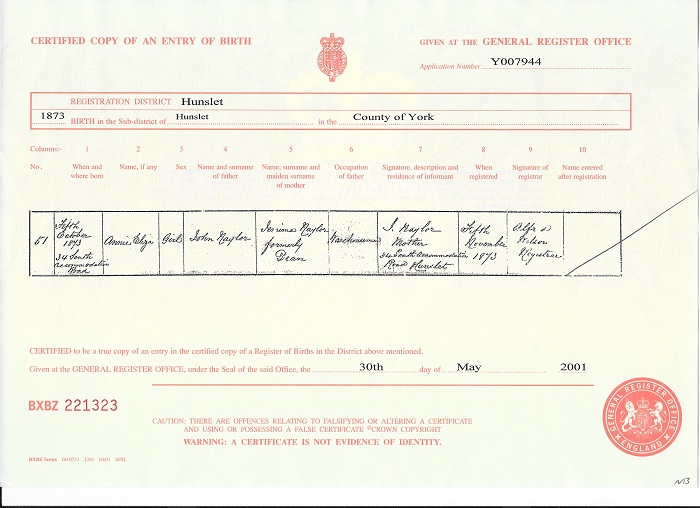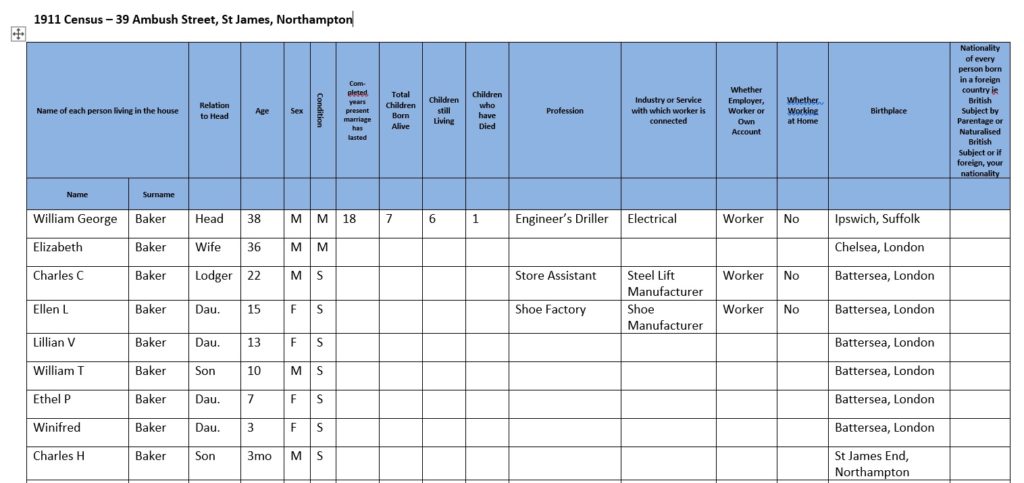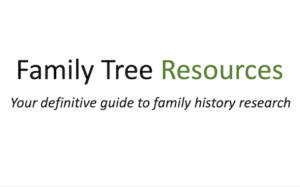Finding out about the occupations of your ancestors is crucial if you want to add more details about their lives to your family tree rather than just birth, marriage and death dates. Occupations can also help you to distinguish your ancestor(s) in the records.
If you wish to know more about your ancestor’s daily life, and imagine what their life might have been like, knowing your ancestor’s occupation is crucial. It can also help you to determine what the family’s economic standing was in comparison with others in the area.
You are likely to find out more about a person’s job if they were involved in a trade which was well documented, such as an apprenticed trade.
Occupations Can Help You Distinguish Your Ancestor and Family
Discovering your ancestor’s occupation can help you to distinguish between two people of the same name, and can also help you to determine if father and son shared the same occupation, thus helping you to discover your family in the records.
If your ancestor had a common surname such as Smith, finding out their occupation could help you to discover them in the records.
Some Occupational Records Were Not Kept
Unfortunately you are less likely to find out much information about a person’s career if they were a servant or farm labourer.
Most Common Occupations
Industrialisation in the nineteenth century meant that there was a higher demand for religious ministers and teachers, along with accountants and bankers.
According to Armstrong’s Classification System (for 1851), however, the most common industries people were employed in in England and Wales were agriculture and manufacture. In London, however, as this was/is a predominantly urban area, the number of people involved in agriculture was much lower.
The problem with being employed in agriculture was that this industry was predominately seasonal, and did not have many long term benefits. Many began to work in the mills and factories during the industrial revolution.
There is also a list of occupations in the nineteenth century.
Where Can I Find Details About My Ancestor’s Occupation?
Their occupation can often be found on birth, marriage or death certificates or in parish registers.
In the parish of All Saints, Northampton, the man’s profession was entered in the baptism register in April 1734.
In some later years, however, the father’s occupation was not noted, so it really depended on the clergyman of the time, and how much information he wanted to include.


As you can see from this birth certificate, my ancestor John Naylor was a warehouseman when his daughter Annie was born in 1873. This was one of many different roles John had over the years.
When his son Charles Henry was born in 1876, he was a labourer in a brewery, and when his daughter Alice Dean was born in 1879, he was an insurance agent.
That is not counting the numerous jobs he had at the time of each census! In the 1861 Census, he was noted as being a railway clerk.
In 1871, he was a commercial traveller, and in 1881, an insurance and coal agent. In 1891-1901, he was a glass, china and earthenware dealer, and in 1911, a retired hardware dealer.
He had so many different occupations, it was hard to keep up!!
Occupations can also be found on census returns. As you can see from this transcript of the 1911 Census, my ancestor William George Baker was an engineer’s driller in the electrical industry.

Some other documents that may yield more information about your ancestor’s career are wills, directories and taxation records. It is always nice to learn a specific talent you have today may have come down through the generations of your family.
If your ancestor emigrated to another country or immigrated to Britain, ship passenger lists usually list their occupation.
If an obituary was placed in the newspaper when your ancestor died, it is possible that their occupation was listed. Older obituaries, however, may only include death and burial details. More details began to be included in obituaries in the 20th Century.
You can also check city directories to see if your ancestor was listed as they often state residents and local businesses, so if your ancestor had a business, it could well be listed in the directory.
It is always possible that your family may have kept records that state what your ancestor’s occupation was. Trade certificates show that the person was qualified to work in the trade.
If your ancestor worked for a company, the company may have kept employee records that could be available through a County Record Office. Records for a large company such as the Levant Company may be kept in the National Archives.
If your ancestor enlisted in the Army, their enlistment paper may state what their occupation was.
My Ancestor Was in a Licenced Profession
Your ancestor would have needed a local magistrate’s licence, issued for a year, if he was in a position that was licenced, such as a gamekeeper or innkeeper.
The records usually state the applicant’s name along with the location and period for which the licence was valid.
My Ancestor was Involved with a Limited Company
All limited companies have been required by law since 1844 to register their details with Companies House and you are able to study the register in London and Cardiff after paying a small fee.
A computer database is also available, which you can search for details of existing companies and also for those dissolved in the last 20 years.
My Ancestor was Involved with a Guild or Trade Association
The first guilds and trade associations, which promoted skills and standards, was established in the 12th Century. They regulated their specific trade or craft, and new entrants and apprentices were often asked to complete training which often lasted for seven years.
My Ancestor was an Apprentice
If your ancestor was in a skilled trade it is likely they first started out as an apprentice and you may be able to find their apprenticeship record at the local Record Office.
The National Archives hold a central register of apprenticeships in England and Wales, covering the period from 1710 to 1811. The books give the masters’ name, addresses and trades and the name of the apprentice along with the date of their indenture.
If your ancestor wished to practice the craft he was taught, an Act of 1562/63 stated that the person should serve an apprenticeship of at least seven years. If he practised this craft without going through this apprenticeship, he could have been fined.
Two indentures were required to set out the terms of the agreement. One indenture had to be signed by the parents of the child undertaking the apprenticeship, and the other by the master, who received a payment for agreeing to train the apprentice.
The name of the apprentice, the master and his trace and the father of the apprentice was included in the indenture. Some indentures also note the date and place of birth of the apprentice, so they are well worth looking at as it may help you to break down a brick wall.
These apprenticeships were usually recorded in registers, which state the apprentice’s name, his master and their trade.
